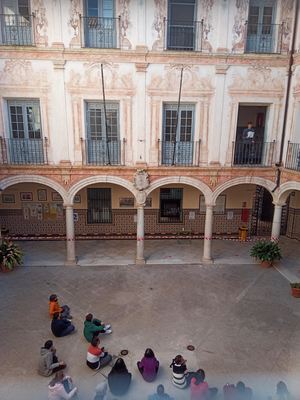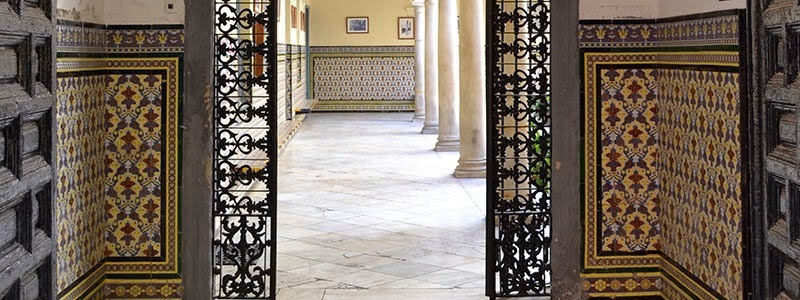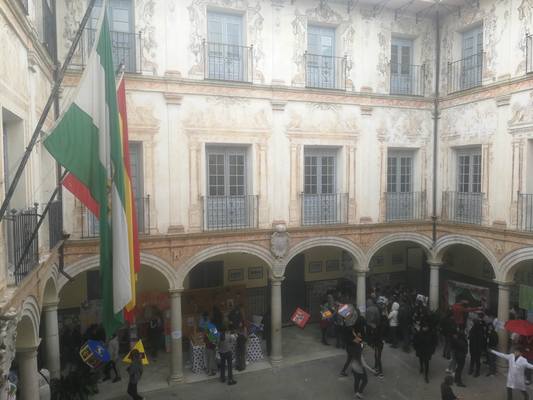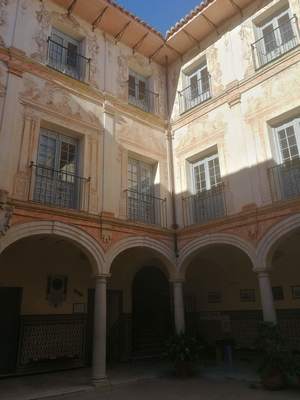
IES Vicente Espinel is the oldest secondary school in Málaga (southern Spain). The building was founded in 1706, but it wasn’t until 1846 that it became a school, remaining the only secondary education centre in the province until 1928. Our school was an educational model for over a century, with students who would become Nobel prize winners, politicians, scientists or artists, like Severo Ochoa or Pablo Picasso. Today we are keen on providing opportunities for all our students, who come from different backgrounds and some of whom face socio economic difficulties. This is why the backbone of our school lies on the constant improvement of the teaching / learning process and inclusion programs targeted at the whole educational community (students, families, school staff and local organizations). We must mention ‘Learning Communities’ (Comunidades de Aprendizaje) as our backbone program around which studies are structured. In the 2020-2021 school year, there are 54 staff members and about 450 students, of whom 262 study in the morning shift and are the destinataries of our project.
Currently there are two main study programs in the school:
- the morning studies, with the 4 years of compulsory secondary education (CSE) plus 2 post-compulsory courses (Bachillerato)
- the evening shift, devoted to adult education.
The morning students are the ones who will participate in this project about digital education, as we intend to implement the Erasmus first for 12-18 year-old students and then extend it to adult education.
Our motivation to join this project is to continue improving our distance learning and give an appropriate response to the educational needs of students by enhancing international awareness, focusing on European heritage in particular, and providing opportunities for intercultural dialogue. To put it differently, our aim is to give an international dimension to our school and establish long-lasting ties with our partner schools, so that students in compulsory secondary education can benefit from this partnership, both culturally and socially. This alliance will also be useful for the development of the key competences and providing learning experiences beyond the classroom.

The key people in charge of this project in our school have created the Erasmus+ team, including school administrators, in particular the principal, who has stimulated quality in education for years, the coordinator of International Programs, and several teachers from subjects such as varied Spanish Language and Literature, English, Economics, History, Maths or IT. The coordinator of International Programs will not leave his post in the future because it was obtained in September 2019, but in the worst case, another teacher from the Erasmus school-team will be appointed head of the International Programs Department and will continue to coordinate the project with the help of the other team members.

Our school can contribute to the topic of digital education as we were using an online moodle platform long before the pandemics began, thanks to which the teaching / learning process continued during the 2020 months of lockdown, and are keen on improving the quality of our distance learning. The nature of our building itself calls for work on the topic of heritage, there are initiatives carried out to conserve and promote it but our major interest lies in disseminating it with the aid of technology and our students.
